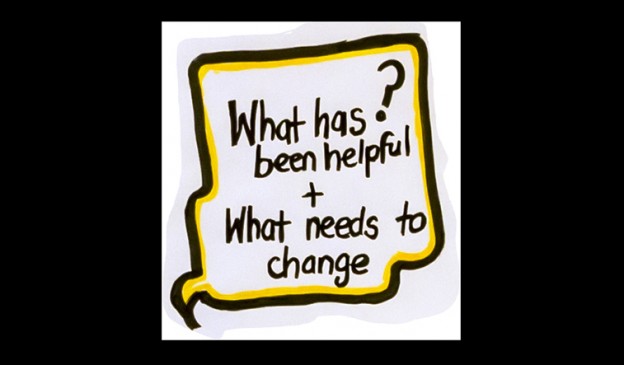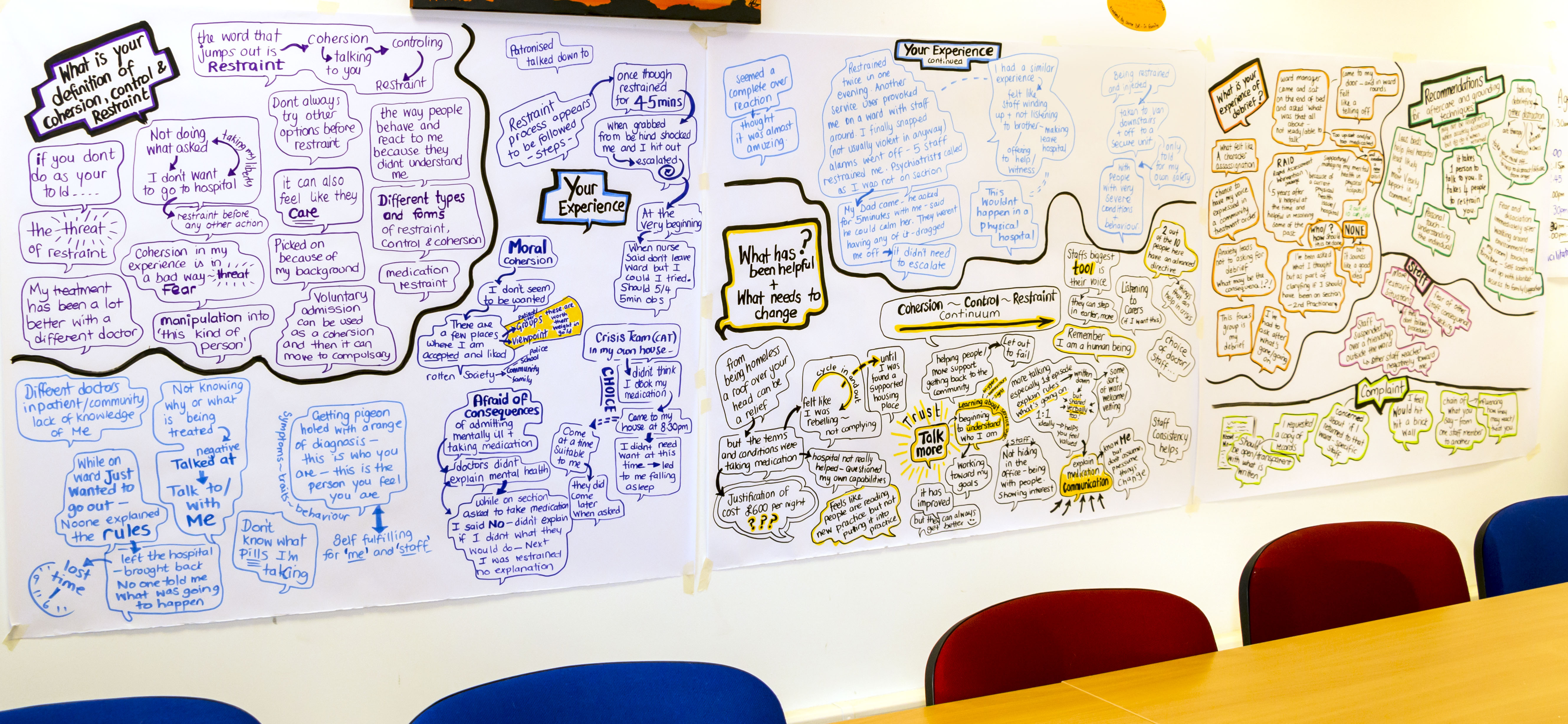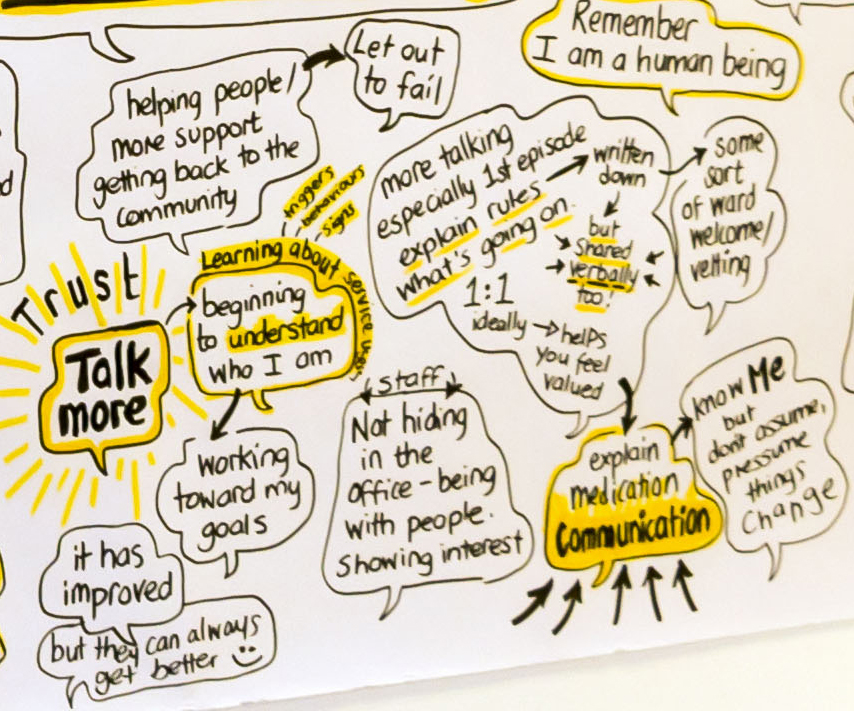Graphic Facilitation can be a great tool for consultations and focus groups when discovering people’s views is the reason you are bringing people together. When people come into the room there is usually some feelings about the subject about to be explored and sometimes a not unhealthy scepticism about the process you are about to take them through. People are brought together for consultations and focus groups for anything from restructuring within organisations, changing community resources, to researching peoples experience of any number of services. When approaching the task using Graphic Facilitation a whole new set of potentials can be added. The session can be interactive with facilitation post-it’s, graffiti walls, idea walls and other ways to get people involved and exploring the topic together. Sessions may also use discussion as the key tool whereby the roles would be to facilitate the discussion and capture a graphic record live of the words people are actually saying and not an interpretation of what they are saying. This live visual recording is incredibly empowering where relationships may have unequal power or at least perceived unequal power.
When approaching the task using Graphic Facilitation a whole new set of potentials can be added. The session can be interactive with facilitation post-it’s, graffiti walls, idea walls and other ways to get people involved and exploring the topic together. Sessions may also use discussion as the key tool whereby the roles would be to facilitate the discussion and capture a graphic record live of the words people are actually saying and not an interpretation of what they are saying. This live visual recording is incredibly empowering where relationships may have unequal power or at least perceived unequal power.
The graphic record (part of if) displayed here was from a three-hour session with around twelve people. The subject was a very difficult one; people who had themselves experienced being physically restrained under the Mental Health Act. Here the subject was a very personal experience and unfortunately a largely negative experience too. Once I had described the purpose of the session, how it would be run (with a strong focus on ‘On your own terms’ and ensuring support was available should anyone feel distressed by the experience) and we had all introduced ourselves the discussion got under way. Within a few minutes people were seeing their words recording in a way they recognised, there was no researcher mystery, no notebook just the wall and the words. It should be noted people had also given consent for an audio record alongside the visual notes to enable cross checking should it be needed in the write-up.
At the end of the focus-group, the whole group reflected how transparent it had felt, how their guards were relaxed and how included it had made them feel. Now whilst this was a delicate subject I have had the same or similar reactions when it is theoretically about less emotionally evoking content, about organisational and community changes for example. I think many of us possibly have a little anxiety and suspicion about what the person is recording in the notebook we cannot see, so by creating notes in a way that can be seen and is accessible is a strong positive.
You’ll notice that unlike graphic recording at conferences and events that often have a lot of imagery within them this graphic record is almost entirely words. This is intentional, the time was short and the time available was given to capturing the many fragments of experience and insight from the people in the room and so this was the priority on this occasion. Each occasion is different; who the people are, the topic being explored, how long you have together and the purpose of being there. But one thing appears to remain constant, it is not just or always a pretty picture, in fact, sometimes it is not even a picture. there may be no or few images but the graphic record is created live in a visually accessible way in front of the people whose views and words are needed.


